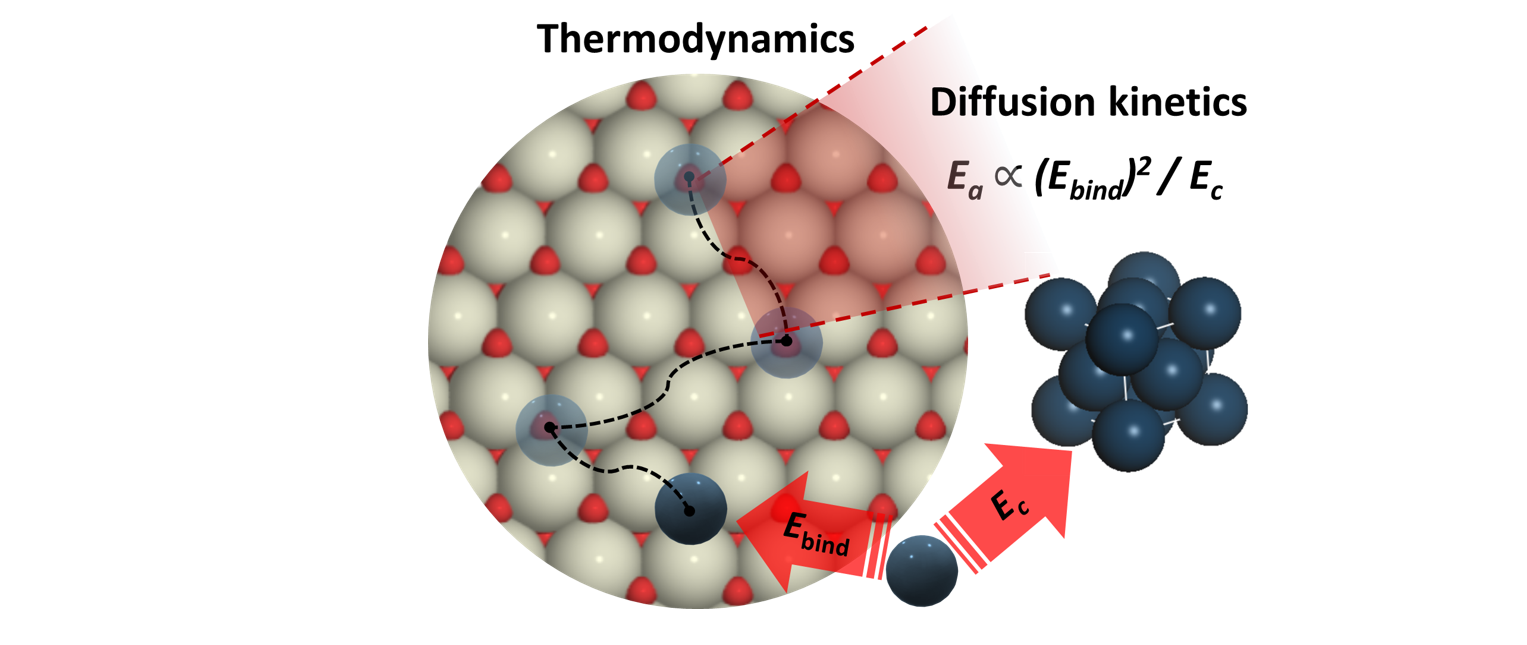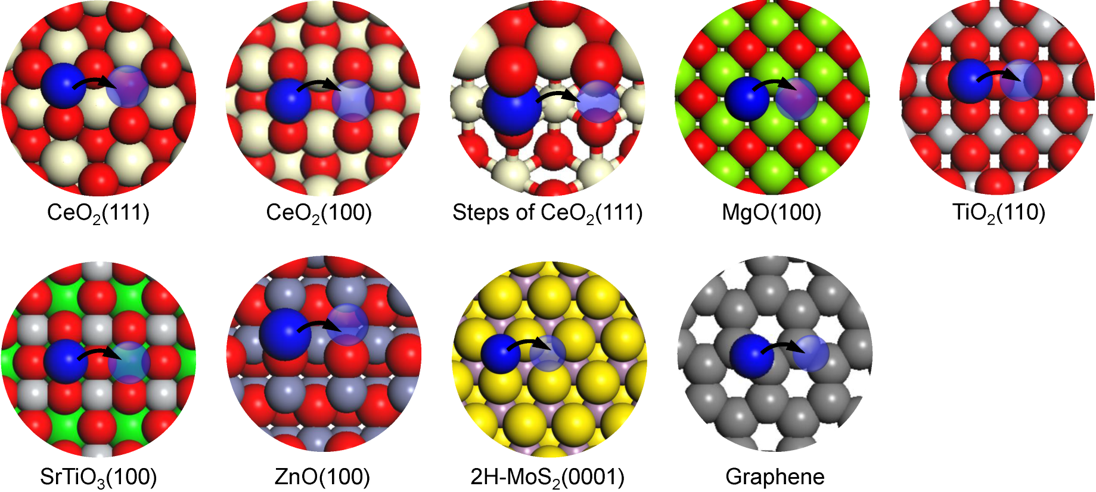This repository contains the workflow of training scaling laws based on physical descriptors (features obtained from density functional theory calculations) using various machine learning methods.
The scaling laws are useful surrogate models for fast prediction of desired properties and catalyst material screening, saving computing time by doing fewer quantumn calculations.
- Yifan Wang (wangyf@udel.edu)
- Ebind, the binding energy of single-metal atom on a support
- Ea, the activation barrier for metal atom diffusion
Ebind and Ea represents the thermodynamic and kinetic stability of single metal atom catalysts, respectively.
The dataset includes properties of the single-atoms on the support calculated from density functional theory (DFT) in Ea_data.csv
- 9 types of supports
- 11 types of metals: Ag, Au, Co, Cu, Fe, Ir, Ni, Pd, Pt, Rh, Ru
- 99 sample points
- LASSO regression
- Ridge regression
- Elastic net
- Ordinary Least Square (OLS) regression
- Genetic Programming (GP) based on sybomlic regression
- gp_models: files for training genetic programming models
- ml_models: files for training statistical-learning models
- Numpy: Used for vector and matrix operations
- Matplotlib: Used for plotting
- Scipy: Used for linear algebra calculations
- Pandas: Used to import data from Excel files
- Sklearn: Used for training machine learning models
- Seaborn: Used for plotting
- Gplearn: Used for training genetic programming models
- Graphviz: Used for symbolic tree visualization
Su, Y.; Zhang, L.; Wang, Y.; Liu, J.; Muravev, V.; Alexopoulos, K.; Filot, A. W.; Vlachos, D. G.; Hensen, E. J. M. Stability of Heterogeneous Single-Atom Catalysts : A Scaling Law Mapping Thermodynamics to Kinetics (2019). (Submitted)
Dr. Ya-qiong Su (DFT data)

